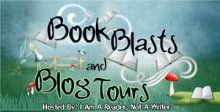
How do you feel about self-publishing?
My very first book, The Spirit of Medieval Japan, appeared under the publishing wing of an NGO while dozens of my non-fiction articles and short stories were published in various academic journals and anthologies. Apart from public exposure, there was no monetary benefit. Among the books I have chosen to self-publish, The Matrix and the Alice Books has been the most successful financially. As a writer, to be paid for your writing is a huge reward. Now that one can read an e-book on an increasing score of gadgets, I think selfpublishing is a positive way for writers to make their work available to a very large section of the public. And if the writer did their job properly, then they might even see a return on their investment.
What was the hardest part about writing The Matrix and the Alice Books?
The first hurdle was finding a professor at my university to agree to supervise my thesis and then pleasing her with my work. Eventually, after three initial attempts, we agreed upon presenting the similarities between The Matrix and the Alice books using an intertextual framework.
Did writing this book teach you anything?
I started writing The Matrix and the Alice Books as my Master’s degree thesis at Assumption University in Bangkok, but the current version of the book is somewhat simplified so that it’s far more reader-friendly. What I’ve learned from writing this book was that websites can be quite ephemeral as they can go off line with absolutely no notice at all. Thus, it is very important to mention online sources not only with the link but also adding what date the link was last accessed.
What’s the last book that you purchased?
I’ve recently bought The Thousand Autumns of Jacob de Zoet by David Mitchell, a novel set in 18 via Cloud Atlas, a 2012 science fiction film directed and produced by Lana and Andy Wachowski, an adaptation of Mitchell’s 2004 novel of the same title. As a fan of The Matrix, I follow closely the Wachowskis and have always found their choice of topics to suit my taste too. This also proved to be true in the case of David Mitchell’s works.
What is your favourite quote, by whom, and why?
Wachowskis’ “The Matrix has you” is a powerful statement that has resonated with a whole generation of science fiction fans. The quote makes reference to the realization that our lives are controlled by an outside force and some of us have the willingness to fight this force or, on the contrary, feel the desire to conform and play by the rules. From the stand we take when it comes to governments, economic policies and social issues, our choice to remain part of the Matrix (the powers-to-be) or our struggle to break free and fight the system is brilliantly summarized in these four words: “The matrix has you.”
The book presents aspects of intertextuality in the motion picture “The Matrix” and the books “Alice’s Adventures in Wonderland” and “Through the Looking-Glass” by Lewis Carroll. It makes use of a literary construction developed from Gérard Genette’s structuralist theory of transtextuality as a framework to present how a web of intertextual relationships is clearly formed between the “Alice” books and “The Matrix.”
Buy Now @ Amazon
Genre – Non-Fiction/Movie Studies/Literary Criticism
Rating – G
More details about the author and the book
Connect with Voicu Mihnea Simandan on Facebook & Twitter
Website http://www.simandan.com/










0 comments:
Post a Comment